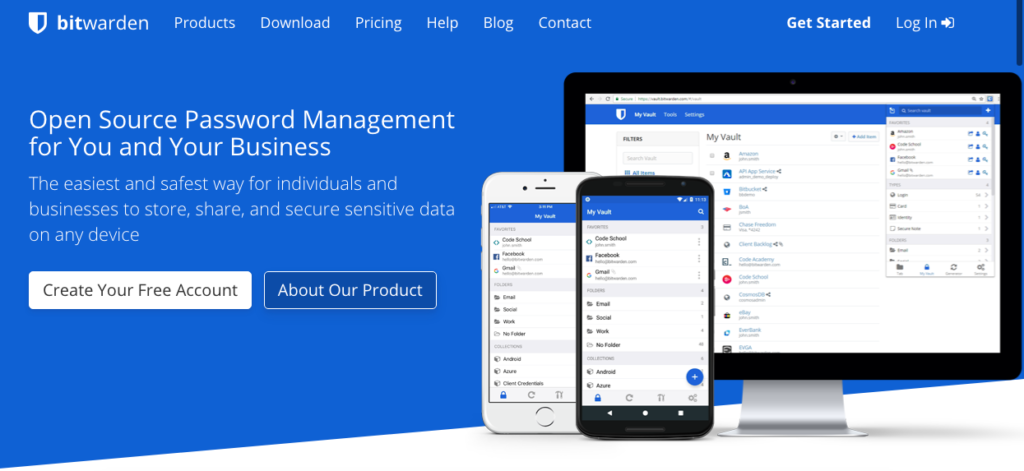It is useless to encrypt e-mail messages if we then use passwords with our child’s birth date or pet’s name. There is software that tries millions of combinations per second. A few minutes to a few hours is all it takes to discover your password. The simpler that password is, the sooner they will do it! The pass “word” should be replaced by a pass “phrase”, such as “Angela Merkel is the only scientist head of state!” or whatever phrase, even an obscene one, is sure to stick in your mind. It would be better to use it to access a password manager, software that generates alphanumeric passwords as long as you want and difficult to “crack.” The software takes care of storing them and using them each time you log in. You are left only with the task of the passphrase to access it. Among the best is Bitwarden, which besides all is also open source = run by a community that has the same intent, the one I am writing for. It already does so much in the free version, including syncing to all the devices we use, so we have our passwords available anyway. If we want more options and more security it only costs $10 a year!
Shrink your profile
Ideally, you should use Linux, at least for anything Internet-related or sensitive online activities. You can also install it on virtual machines (VMs) to run from your operating system, on whatever computer is powerful enough to allow it. The free and open source Oracle VirtualBox application is excellent at this.
Then it would be good to delete when possible the Gmail, Outlook, Yahoo, etc. mail accounts. All these systems also offer cloud space to store our information so that we can access it from any device. Google Drive, Apple’s iCloud, Dropbox, Microsoft’s One Drive, offer no guarantee that our data will remain private. An Open Source and secure alternative is Nextcloud.
One should stop using Facebook, even delete the account. It is the platform that most exposes us to this, along with the Google search engine. I don’t use Google Search anymore and I’m very much limiting my activity on Facebook and socials in general, which the less you use, the better. It’s important to limit the expression of opinions on socials as much as possible, but also the likes, the reactions that they ask us for and instead are the foundation of using these platforms. I am not saying that we should not express our opinions; I strongly suggest not doing so on social platforms, unless that is your job. These are platforms that have been offered to us for free in order to monitor us, to keep an eye on us, and to make money from our behaviors.
It is not easy, nor is it always possible. For example, it is unthinkable for me to do without YouTube, from which I get an impressive amount of information (including information warning about the dangers of the Internet). All the alternatives to YouTube are horrible and certainly do not offer the enormous amount of content available on it. What can be done is to tie a fake-named Google account of our own to YouTube with as little personal information as possible, disabling any options in the privacy configuration that might increase the inevitable tracking. As also with Netflix-type streaming services, avoid autoplays and ignore suggested videos to continue using the platform: we choose, on our own, to the extent possible, what and when.
